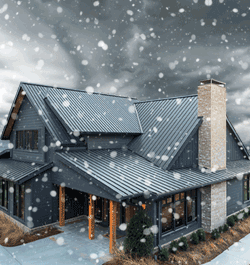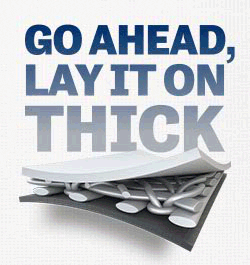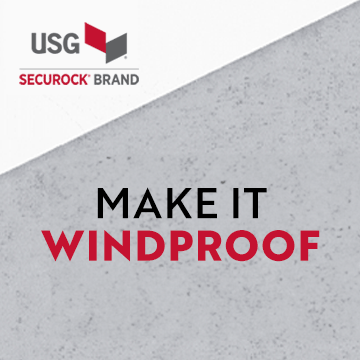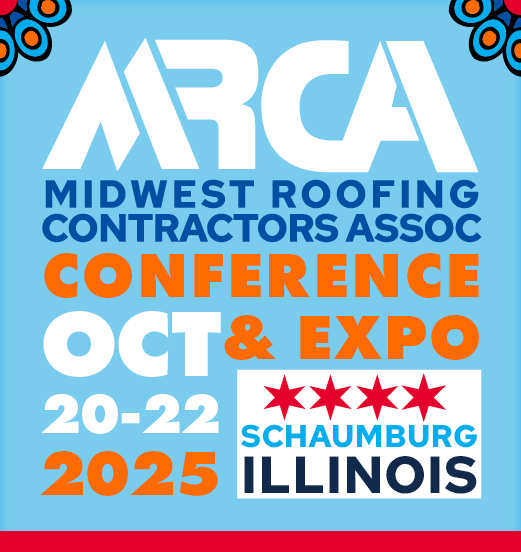Insurance Question, Never Discussed This Viewpoint Before
« Back To Roofers TalkInsurance companies will pay for a Nailable roof deck to be installed, like when the bottom layer is cedar shingles over skip sheathing.
Since a "Nailable" deck surface requirement is necessitated, should their be an obligation to do Nail Pull-Out tests to see if the current holding resistance strength will provide the required PSI, which, by the way, is 40 PSI that I discovered in previous research? In this instance, I am now referring to a regular roof with an existing, but structurally weakened sheathing in place.
What weight would that required PSI Pull-Out test carry, when the decking has absorbed excessive humidity due to natural aging and a probable minimally vented attic?
Regardless that the internal attic humidity levels may have created the conditions to permit the decking to lose its Pull-Out Strength, would it still not be a reasonable conclusion that when doing the new roof, the decking should meet the proper criteria?
Ed>>>
You make sure that they don't use the cheap azz pine 2" x 4"s or 6"s that get used in current times. Get some good old heart wood from big tree country to match the existing.
I do see the depreciation point of view, but still, it is a cost that the home owner would not have encountered had the roof replacement not been necessitated from an insurable event.
Ed>>>
From the insurance point of view there is a Deprecation issue. Also wear and tear . Why did the plywood delamination did the owner mitigate the damage to prevent as much of it as possible ie leaking roof replace or repaired where the plywood is delaminated ? You get the idea. What was it that caused it in the first place. On the other hand at my burn out the wood was 95+ years old and was good right up to the fire. Now it has to be replaced . savvy>>>
You know I am going to agree with that, but even if I took my inherent bias out of the picture, I would still feel the replacement should be justified under a code compliance issue, if for nothing else.
If a crew did have to wait, what would be the scenario then?
Pay for tarping? Stand around on the insurance companies dime until they get out there to make a call? Pull off of the job for an undetermined amount of time?
The only logical answer is, that it must be done.
Also, I have always wondered about this additional point.
The home owner would not have had to incur the expense of replacing the plywood, had the roof not been damaged sufficiently enough for a total removal and replacement. So, by that scenario, why should the home owner now be penalized for out of pocket monies to be spent that he would otherwise not have been required to do, if it were not for the roof replacement being required.
Ed>>>
Ed - Under the conditions you described, I think the answer is yes, it would have to be covered.
My thoughts revolve around the idea that we've got the old roof torn off and exposed to the elements and we have to make these decisions in minutes not deliberated by committee with the luxury of unlimited time to study the nuances of the contracts and get caught up in the minutia.
>>>
Lets just say then, that the local building inspector did an in job progress inspection and required the plywood decking to be replaced to meet current code requirements due to the old decking being substandard from delamination now.
If the policy had code upgrade coverage, would that then be considered a substantive proof for the need to be compensated for the new plywood decking?
Ed>>>
After dealing with the structural engineers and scientist today this issue of pull strength would be put in the lap of these people after it was turned into the claims office, Which would in all likely hood end up with a court interpretation . reality again>>>
In a competitive bid situation, I've often lost bids because of the open ended contingency clauses. Where do we draw the line? Let us suppose that after the rotten decking is removed, we discover that the rafters or trusses are not properly attached to the header. Is it incumbent upon us to correct the deficiencies? Ideally, it is. Let's suppose that the insulation is matted and riddled with mildew; should be replace the insulation? Ideally, yes. What if, after removing rotten decking, you discover that rats have eaten through the wire insulation for the light fixtures. Is it incumbent upon us to have the deficiencies corrected? What if the property owner can't afford the additional cost of these repairs? How can we simply cover them up?
>>>
maybe , like the car and truck inspection industry, if there were a way to make i living doing it, someone would or could come up with an un-invasive and safe way to get up into an attic to check for these things. a camera on a tape dolly....we could call it roto roofer. from the attic scuttle in a lot is small ranch style houses, I have made the determination that everything looks good, only to find the first 2 ft of sheathing totally gone, but unaccessible fro this point of view. I guess a thorough roof and ventilation inspection is something that needs to be offered, regardless of the inspectors involvement in the actual roof installation business.>>>
Limitations of liability and exclusionary clauses are in need for your contracts for such items.
I peek into a lot of attics, but I don't want to be climbing around on joists on my hands and knees, just for the sake of a horse and pony show. It hurts too much, plus, I can potentially crack some ceiling product with one slight movement mishap.
Ed>>>
I don't think that insulation contractors that go into old houses and start pouring fibreglass and cellulose and rockwell insulation as thick as they can, have ever considered that concept that they have just restricted the only air flow that the same attic has been using since the house was built. When inadequately ventilated attics start accumulating condensation from temperature changes then the problems start. Suddenly, because the moisture is coming from the roof/ rafter areas, it's the roofers fault? How many times have you seen endless attempts by other guys to fix a roof leak that inevitably showed the cause to be attic condensation. Attic/ roof ventilation issues should be an insulation contractor's consideration. Why do we in the roofing industry absorb the curse of high rates of insurance for problems caused by an industry that we have nothing to do with?
Offering a ventilation inspection when out doing roofing/ gutter / siding inspections seems like a logical opportunity to address the possible problems that NOT correcting something that was "considered as an improvement", might cause. It's kind of a Bermuda triangle of responsibility....we all deal with what we can add to our work to address the potential for problems in underventilation, just as insulators do what they can to make as much as they can by adding as much to the R Factor of the attic space. But if we don't climb into the attic, and insulators don't work on the soffit/ ridge gable vent details....so....we're at fault?...for NOT doing something? How's THAT work?
>>>
Jed,
Probably not before code enforcement, but the subdivision is just as Builder described, with the original deck sheathing being 3/8" and most likely was well on its way to already being de-laminated when the additional plywood was installed on top of the existing shingles.
The hack job was probably done on a weekend to bypass the code enforcement and permitting process to be able to say it had a new roof on it at one time, in order to sell the home. Just guessing though.
Ed>>>
I would guess that the first layer under the original shingles was already rotted before it was re-sheathed and reshingled. I would never add plywood over existing shingles, only as an added layer ply wood to plywood.... When it had a chance to dry out...it dry rotted in place. If I were to replace a 24 OC roof sheathing, I would upgrade to 5/8 with clips or 3/4 T&G plywood. Too many FHA built subsidized structures up here with 3/8 plywood , some on 2 ft oc. Of course, this opens up another can of worms. if you see when removing sheathing that fibreglas insul is restricting air flow from soffit to ridge vent, offering that as an option might also add to your list. Where I might have had an attitude with inspectors in my younger days that held me up while waiting for them to come by and determine what I needed to do as far as added ventilation on a re-roof, etc , I regret that I didn't use his experience and influence to upcharge those jobs, rather than look at him as the enemy. >>>
Here is a link to a forum where I started to post my job photos.
http://rightwayroofing.freeforums.org/alvarado-job-progress-photos-11-8-07-t2.html
You will need to register to view them I think, but just wait a few minutes, since there are around 200 photos in that thread, so it will take a while for them to show up.
If you do have to register, you will have to wait until I approve your sign up, so I didn't have to keep on kicking off Spammers.
Ed>>>
Over Skip Sheathing Plank Boards, I find it acceptable, due to the spaces which allow air to flow under a significant portion of the exposed underside of the decking.
On solid T & G plank board decking, I would see no reason for a re-sheathing???
I have photos of a job I did 1 1/2 years ago which show the devastation of the underlying original plywood deck, which was shingled over, then had another plywood deck installed on top of that with an additional 2 layers of shingles.
The bottom layer was in near the worst de-laminated condition I have ever seen.
Ed>>>
I based my price here on Home depot selling OSB at less than 6 dollars per sheet. I was suggesting going over thin plywood sheathing that has nothing wrong with it other than thinness. I was referring to actual costs to you, as the installer, not the re-saleable price that should be allowed by an insurer that might include it as a remove and replace. I have more concern for recovery board over a scratched T&G roof before installing rubber than I have for adding a ply of plywood. Same situation when installing vented ISO over an existing sheathing. If there were evidence to the inferiority of adding more plywood to strengthen up a deck, I might change my mind....but I see it all the time....dry plywood to dry plywood, or OSB. Evidence to the contrary certainly would make it easier for me to compete against other contractors who bid that way, and have a building inspector approve that detail.
ADDENDA When I think about it...the possibility for moisture issues might just convince me that what I am doing has been wrong,,,and I stand corrected. From this day forward...I will never re-sheath exterior plywood with another layer, but will insist on total replacement.
>>>























